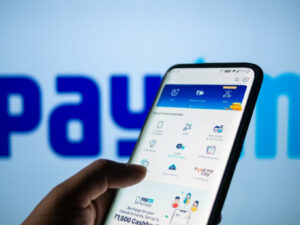The Indian startup ecosystem spent slightly over $220 million (Rs 1,648.6 crore) on buying back Employee Stock Ownership Plan (ESOP) shares from employees in 2021, according to data collected by YS and based on reports. This does not include ESOP buybacks for employees from startups that went public this year.
The ESOP buyback or liquidity events also benefited well over 9,200 employees across 19 startups, leading to wealth creation. The largest such event was conducted by this year, followed by , , and .
These benchmark numbers are a direct result of buoyancy in the venture capital market and the need to retain talent in a market where demand far outstrips the supply, and to some extent, the need to clear a company’s cap table off former employees. ESOPs are no longer restricted to senior management and have stopped being paper money without an aim for realising the value of allotment.
“Our ESOP programme is structured in a way so that 25 percent is vested every year. I wanted to make the programme as simple as possible for my employees as one of the reasons I left Grofers was because the promised ESOPs were not made good by the founders,” Ashneer Grover, Managing Director and Co-founder at BharatPe tells YS.
The company unlocked nearly $20 million worth ESOPs over the last year for its employees, says Ashneer. He adds that equal vesting, maintaining 5 percent of equity as ESOP pool and ensuring that ESOPs are not bought at a steep discount to the round size makes the allotment rewarding for employees.
Industry observers believe that the scheduled, frequent buyback events for startup ESOPs are here to stay, and will continue in the coming year. Startup founders too, want their employees to be able to enjoy the wealth created by them, thus leading to better retention and compensation for the employees in the hyper-competitive market.
“It is interesting to note that Indian startups have spent close to Rs 2,500-3,000 crore year-to-date to buy back ESOPs during the pandemic. These measures are primarily driven by the need to attract and retain top talent in a relatively young business, especially a startup,” says Sanjay Shetty, Director for Professional Search and Selection and Strategic Accounts at Randstad India.
He further adds that these events have also led to influencing employee preferences when it comes to receiving part of their compensation as ESOPs.
“This practice is gaining extreme popularity in India with employees across roles now preferring a compensation structure with a larger ESOP (around 30-50 percent) share instead of the cash component. This increases the wealth creation opportunity at a CXO level amounting to about 15 times their cash compensation,” Sanjay adds.
Startups such as co-living operator Stanza Living, business-to-business (B2B) marketplace Moglix, and ride-hailing app Ola have expanded their ESOP pools this year to cover more employees and to increase the size of the pool.
Starting early
From being a salary component to attracting senior-level talent, ESOPs are now an incentive offered to even new hires.
“When we went for campus placements this year, one of our pitches to the students was the value realisation from ESOPs for our employees. It helped us hire some good talent,” says Mihir Gupta, Co-founder and CEO of online teaching platform, Teachmint.
The company raised $78 million in a Series B round led by Rocketship.vc and Vulcan Capital in October this year. Though freshers being offered ESOPs as a perk is still rare, startup employees are clearly more cued into the upside of ESOPs.
“Progressive companies are looking at extending their ESOP pools to cover a larger number of employees across grades. Also, we see an increasing number of startup founders topping up the pool with subsequent rounds of funding,” says Lakshman Gupta Kanamarlapudi, Co-founder and COO of equity management platform Qapita.
He adds that smart entrepreneurs are willing to carve out ESOP pools aligned to the hiring needs of the company, and ESOP has become more relevant as an instrument to attract talent for lateral hires.
According to a recent report by LONGHOUSE Consulting, nearly 35 non-founder employees across nearly 12 Indian startups own stock options worth over Rs 100 crore.
Top Indian technology companies by size of ESOP pool (includes startups which went public in 2021)
Adding predictability to liquidity
Founded in 2020, announced its Continuous ESOP Liquidity Plan (CELP) for a period of one year beginning on January 1, 2022. The plan allows the startup’s employees, numbering 200, to liquidate their vested ESOPs anytime during the year, thus giving them greater flexibility.
Similarly, fresh meat and meat products brand announced daily vesting of ESOPs beginning on January 1, 2022 and any time liquidity for its employees. The move will benefit 1,000 employees in the company which employs over 3,500 people across roles and functions.
“When we announced the buyback, many of our employees did not feel it was the right time to liquidate. Depending on their financial planning and requirements, CELP gives them greater flexibility to exercise their options,” says Mihir, adding that while the company has set aside a set amount for the programme for 2022, it might consider renewing it later, depending on the response.
Delinking ESOP buyback events from fundraising will also be a trend going ahead, predicts Lakshman of Qapita. “We are in conversation with startups to introduce structured liquidity events through Qapita Marketplace, where our bank partners can bring in HNIs and family offices that are interested in buying into the private market shares,” he says.
He adds that founders are keen on adding structured liquidity programmes for employees to realise the value of their vested stocks and for financial planning.
ESOPs by a different name
Apart from such buyback events becoming more frequent, startups this year also came up with daily vesting options to give bonuses in the form of ESOP, continuous liquidity plan, and ESOPs for supply-side or vendor partners. For instance, in July 2021, edtech major Unacademy announced ESOPs for educators on the platform, while BharatPe introduced Merchant Shareholding Program (MSP) for its merchant partners.
Programmes such as daily vesting and anytime liquidity are aimed at giving flexibility, says Srikanth Prabhu, Head of go-to-market (GTM) and Partnerships at Qapita. However, he notes that ESOP programmes for non-employees aren’t exactly structured as ESOPs for regular employees.
“The TSOPs offered by Unacademy, for example, are offered to people who are not employees of the company and hence, do not fall under the ESOP laws. These are typically offered as Stock Appreciation Rights (SAR) where the price difference on appreciation of value is paid to the individual,” he explains. Also, the capital gains under these programmes are not taxed on par with ESOP but rather as part of the income.
He adds that nothing stops companies from calling such programmes as some form of ESOPs.
Ashneer of BharatPe says that the MSP is a work under progress and will be structured like a reward or loyalty programme for its merchant partners. “We have lawyers working on the programme which is structured as a trust. Every merchant who does a minimum level of business is allotted a unit of stock which is valued at Rs 100 as per current valuation. This will appreciate as our valuation increases,” says Asheneer.
He adds that the company will help merchants cash out during its IPO by opening up these units to anchor investors.
As the Indian startup ecosystem matures over time, ESOP buyback events are likely to become more frequent. This will also translate into larger ESOP pools from startups that want their employees to benefit from the upside of the growing tech ecosystem in the country.
“More founders want us to communicate the value realisation of ESOPs and we have started initiatives such as Equity Payslip and gamified interface for employees to keep track of their shares in the company and plan their goal,” says Srikanth of Qapita.

![You are currently viewing [Year in Review 2021] The Midas year for ESOPs in the Indian startup ecosystem](https://blog.digitalsevaa.com/wp-content/uploads/2021/09/ESOPs0.jpg)








